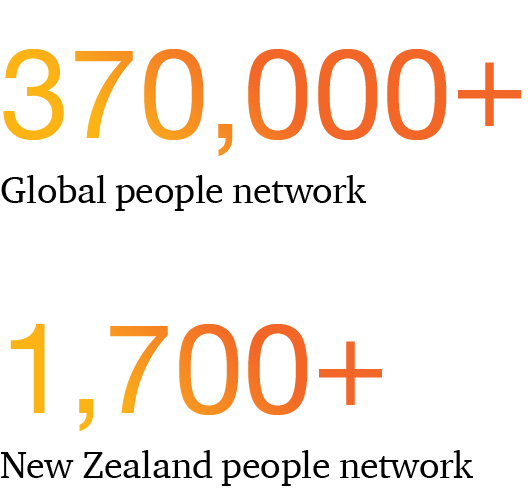Māori Business The Māori economy
The Māori economy plays a crucial role in driving New Zealand’s economic success and is experiencing significant growth – this is projected to continue. Over the last ten years, the Māori asset base has also grown at a significantly faster rate than the overall economy, and is now valued at almost $126 billion.1
The Māori economy is undergoing significant transformation, driven by a growing population and an asset base, expanding its focus beyond traditional sectors such as agriculture, forestry, and fishing.
Although these industries were the primary economic drivers in 2018, that landscape has now shifted. Today, real estate, property services, and professional services have emerged as leading contributors to the Māori economy and to national GDP,2 presenting new and diverse investment opportunities for those who are interested in partnering with Māori.
Treaty settlements (see Te Tiriti o Waitangi below) and a rapidly growing Māori asset base3 continue to provide Māori with capital for opportunities beyond the primary sector, with diversification among post-settlement governance entities (a legal entity established to receive and manage settlement assets on behalf of the claimant group) into the education, tourism, infrastructure, property development, and technology sectors.
We have also observed the emerging collective voice of Māori authorities (incorporations or trusts that are involved in the collective management of communally owned Māori assets) and land trusts who are significant contributors to the Māori and national economy. Māori collectives (Māori trusts, Māori incorporations and other Māori entities) make up $41 billion of the Māori asset base with many having "hundred million plus" balance sheets, strong governance and management, and long-term growth strategies.
Māori collectives are reported to own around 50% of all agriculture, forestry and fishing assets in the Māori economy:

Source: Ministry of Business, Innovation and Employment: Te Ōhanga Māori 2023.
Recent data4 on Māori businesses indicates that:
- there are 1,338 Māori authorities and 3,849 other Māori enterprises (being, other Māori businesses that are economically significant but are not Māori authorities) - 7.2% of which were Māori tourism businesses
- Māori authorities have provided employment opportunities for around 12,300 individuals while other Māori enterprises have contributed to the workforce around 39,200 employees
- Around 22% of Māori authorities operated in agriculture and other primary industries, with the average size of Māori farms being nearly three times as large as the average New Zealand farm
- Māori authorities exported $816m worth of goods, 29% of which went to China, while other Māori enterprises exported $534m worth of goods
- The total income for Māori authorities was $5.1b in FY23.
Māori Business Joint ventures with Māori
Joint ventures between Māori and non-Māori organisations are becoming increasingly common with Māori organisations seeking to partner with investors who in addition to contributing capital also contribute capability and expertise while recognising the strategic value (resource access, relationship networks and local understanding of regulatory processes) that Māori organisations bring to the relationship.
For some large projects requiring the use of natural resources, we are seeing a number of innovative ownership and commercial models which incorporate:
- strong alignment of values between partners and the development of covenants or kawenata (undertakings)
- access to global intellectual property, technology and innovations
- reciprocal access to channels to market
- mutual investment into the health of the environment and sustainability of the natural resources
- recognition of mana whenua and mana moana (local tribal authorities)
- representation on governing boards and executive management teams
- investment into skills, workforce, education and scholarship initiatives.
Alignment of values and a mutual focus on long-term investment goals often results in a successful joint venture between Māori and non-Māori parties.
Māori Business Te Tiriti o Waitangi (the Treaty of Waitangi)
A treaty was signed by representatives of the British Crown and Māori chiefs representing some, but not all, Iwi in 1840. This constitutional document of New Zealand’s history has seen increased recognition in recent years with the continuing development of policy and legislation within Aotearoa and as the Government continues to negotiate and settle claims in relation to Treaty breaches and grievances (with such settlement packages typically including cultural and commercial redress as well as a Crown apology). These settlements help to provide Iwi with capital and assets enabling them to explore commercial ventures that support broader social and cultural goals for their communities.
The Treaty is expressly recognised in various pieces of legislation. For example, the Resource Management Act (RMA) 1991 and the Urban Development Act 2020 each provide a statutory requirement for persons exercising powers and functions to take into account the principles of Te Tiriti o Waitangi (see Property section). The Local Government Act 2002 also recognises the Crown’s responsibility to take appropriate account of principles of Te Tiriti o Waitangi and to maintain and improve opportunities for Māori to contribute to local government decision-making processes.
Iwi and Māori organisations and collectives play an important role in helping to grow the domestic capital needed to achieve growth in Aotearoa New Zealand’s productive assets. It is important that investors understand the core values and cultural objectives that underpin investment for Māori organisations, and look to engage with Iwi early, in order to partner effectively.
PwC’s Manukura Māori team is passionate about working with Iwi, Māori focused entities, and organisations to enhance Māori economic, social, cultural and environmental outcomes and help shape a future Aotearoa where all communities thrive. As a community of solvers, the Manukura Māori Business Team advises investors to successfully engage and do business with Māori organisations.












